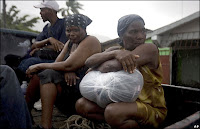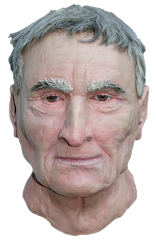
“Change we can believe in” is a slogan we have seen often these last few months. But I wonder if we as a people and a society are really committed to change. Reading about the growing communal tension in India, the unabated abuse and destruction of the environment for personal and economic gain, the flexing of political muscle in so many countries around the world, the aggressive and relentless arms race and the collapse of financial structures and entities across continents brings me to the point where we as a people need “to be the change that we wish to see in the world.” Is it not time now for a whole new world order, a new world view where power, control, order, domination, patriarchy, war, aggression give way to empowerment, equality, humanity and dignity of all living things? Or are we content to languish and wallow in “more of the same?”

The book, “Fire in these Ashes” by Joan Chittister has been an all time favourite of mine. In the chapter ‘New Perspective, Necessary Virtue’ she says, “Feminism is a worldview that revisions the world from the perspectives of the equality, humanity and dignity of every living thing.
Feminism is actually a very simple concept. Feminism is a commitment to the equality, the dignity and full humanity of all human beings to such an extent that we dedicate ourselves to effecting the changes in structures and relationships that make the fullness of humanity possible for everyone. On the other hand, straightforward as it is, it requires a whole new way of seeing the world and everything in it.

Feminism views the world from the point of view of the meaning of creation rather than the concentration of power. To the feminist whatever has been created is good and gifted and necessary to the development of the human race, to be respected, to be listened to, to be included in the panoply of power that affects its existence. To the feminist, nothing is made for the "comfort and necessity" of something else, nothing is without its own dignity, its own meaning, its own value, its own needs, its own gifts, its own rights. To the feminist, life is not a matter of the survival of the fittest, it is a matter of the fullest possible development of us all.
What feminism seeks is true partnership for the care of the earth, true balance of its gifts, true integrity in its relationships. Without it we can never mend a universe distorted by force, given over to power, built on oppression and made the captive of might.

Feminist spirituality calls for a new kind of spirituality in all of us. The rational, the ritualistic, the repressive spirituality of patriarchy that divides the world and everything in it into good and bad, high and low, living and non-living, agent and object must give way now to a spirituality that, integrated, sees God in everything, inspiriting, recognizes the Spirit in everything, inclusive, sees equal value in everyone, humble, sees no one and nothing as more or less acceptable to God, and incarnational, sees God and God's grace present everywhere in everything. Feminist spirituality is indeed dangerous for the orthodoxies that categorize and control. It demands a new ecology of life, not simply a reform of what is. It is the hope of the earth, the liberation of the oppressed, the emancipation of imagination, the very restoration of the real meaning of God.”
Imagine! Believe! Become the change!
 Few days ago I decided to have a bit of immersion experience in different environments here in Tamale. I decided to visit my mentally and physically challenged children in their different homes as they were on a month’s vacation. It was an experience that left me energized. But it also raised a lot of answered questions.
Few days ago I decided to have a bit of immersion experience in different environments here in Tamale. I decided to visit my mentally and physically challenged children in their different homes as they were on a month’s vacation. It was an experience that left me energized. But it also raised a lot of answered questions. Some families lived with those who are challenged in a very integrated way loving unconditionally and with no hint of discrimination. While in some other families this was not the case. The question, “when are the schools re-opening again?” was indicative of the fact that for some these children with special needs were a burden.
Some families lived with those who are challenged in a very integrated way loving unconditionally and with no hint of discrimination. While in some other families this was not the case. The question, “when are the schools re-opening again?” was indicative of the fact that for some these children with special needs were a burden. Many of the families were surprised that I had taken the time to especially visit the children. They told me it had been a long while since anyone had come to visit them as friends. This only highlighted the isolation of these children for me.
Many of the families were surprised that I had taken the time to especially visit the children. They told me it had been a long while since anyone had come to visit them as friends. This only highlighted the isolation of these children for me. I pondered Jesus’ words, “I am the vine and you the branches”. How could I make these children feel like the branches? It gave them great joy when I affirmed them that my community held them and their children in prayer. I believe it will be a greater surprise when they realize a wider world is saying a simple prayer for them as a sign of great love, friendship and unity
I pondered Jesus’ words, “I am the vine and you the branches”. How could I make these children feel like the branches? It gave them great joy when I affirmed them that my community held them and their children in prayer. I believe it will be a greater surprise when they realize a wider world is saying a simple prayer for them as a sign of great love, friendship and unity I request you to breathe a simple prayer today for these my friends and for the many like them, make them feel they are part of the much larger vine, the Kindom of God!
I request you to breathe a simple prayer today for these my friends and for the many like them, make them feel they are part of the much larger vine, the Kindom of God!


























